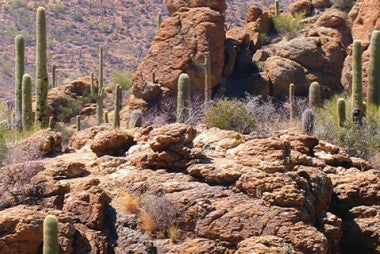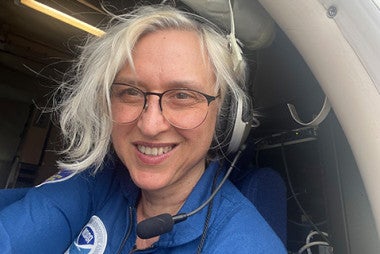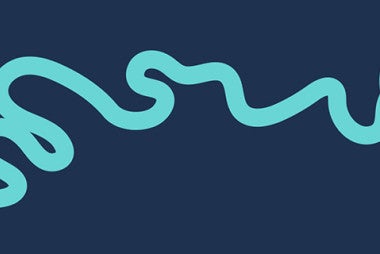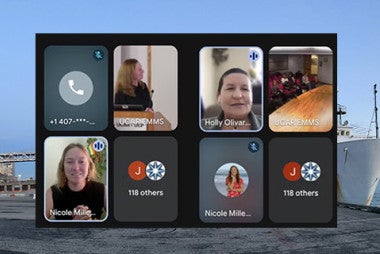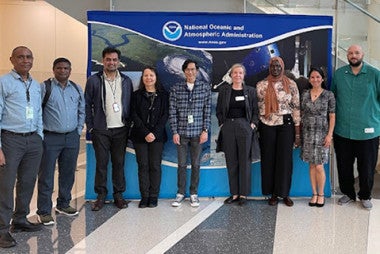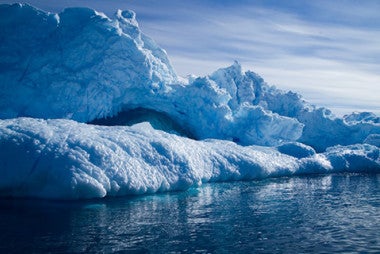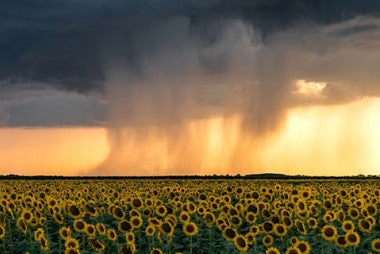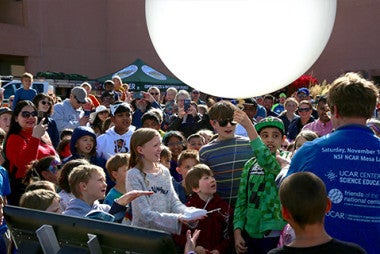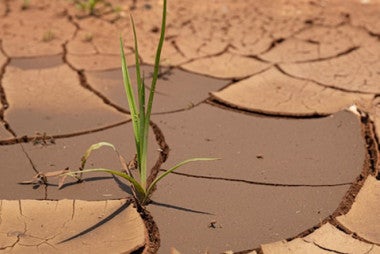CPAESS Scientists at GOMO Monitor Climate Change
CPAESS has a team of five team members currently working at NOAA’s Global Ocean Monitoring and Observing (GOMO) Office including: David Allen, Program Specialist; Cheyenne Stienbarger, Program Specialist; Kathy Tedesco, Climate Program Office Program Manager; Kelley Uhlig, Program Specialist; and Ann-Christine Zinkann, Program Specialist. GOMO monitors and observes half our world’s oceans so that this data can be used in climate and weather models, as well as a better comprehension of our oceans and their role in our changing environment.
GOMO’s mission is to “provide and support high-quality global ocean observations and research to improve our scientific understanding and inform society about the ocean's role in environmental change.” Their vision is to be “a resilient, innovative, and fully integrated global ocean observing system that benefits scientific research, fosters environmental stewardship and serves society.” GOMO conducts these observations using “research vessels and with moored buoys, free-floating instruments like gliders, and robotic tools like Argo floats.” GOMO is also “the U.S. Federal source and international leader for sustained, in situ global ocean observations and information in support of research, monitoring, and prediction (NOAA, 2022).” Recently a few CPAESS scientists at GOMO were recognized for their unique contributions to this important work - Cheyenne Stienbarger, Kelley Uhlig, and Kathy Tedesco.
UCAR | CPAESS Program Specialist, Cheyenne Stienbarger is the program manager for both the Tropical Pacific Observing System (TPOS) and the Extreme Events programs. In this role, she manages scientists from across federal, academic and international organizations to better understand how our predictions of extreme weather events can be improved with our ocean observations. Of the impacts of this work she says, “Hurricanes and other tropical cyclones are among the most destructive weather events on Earth, with negative impacts that are increasingly amplified by warming oceans, rising sea levels, and growing coastal populations - and that disproportionately affects less developed countries and small island developing states (NOAA).” So better prediction can enable people to head to safety prior to these events, thus literally saving lives.
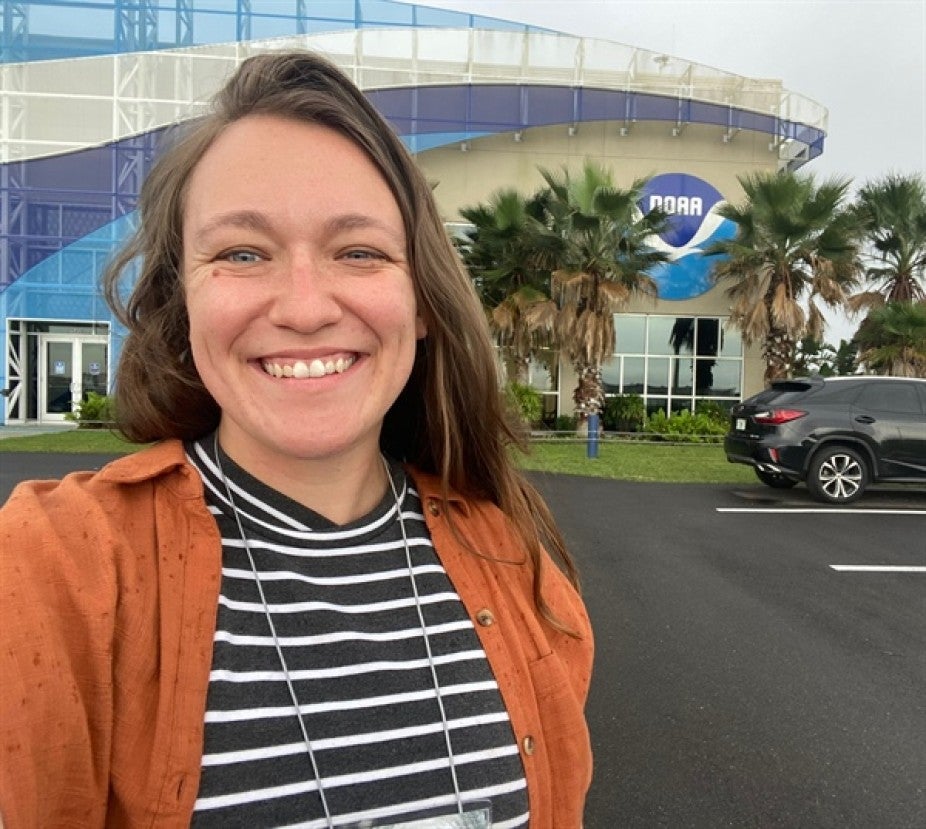
CPAESS Program Specialist, Cheyenne Stienbarger who works at NOAA’s Global Ocean Monitoring and Observing (GOMO) Office. Photo courtesy of NOAA
NOAA’s Climate Prediction Center is “predicting above-average hurricane activity this year — which would make it the seventh consecutive above-average hurricane season (NOAA).” Cheyenne says that “With this in mind, we are planning for a 2023 pilot ‘integrated field campaign’ to provide a coordinated, multi-institutional, and multi-observing platform approach to fully capture many of the ocean features that affect the intensity changes of hurricanes. We will also be working with modelers to integrate ocean observations into the models that predict hurricanes.” Essentially, the better we can hone in on the timing of these extreme events the better prepared we can be as a society. Read more about Cheyenne and her work on NOAA’s site.
Another great talent on CPAESS’ team at GOMO is Kelley Uhlig. She has been working with GOMO for several years and recently became UCAR | CPAESS staff. Kelley works with the Arctic Research Program and served as the Coordinating Editor for the Arctic Report Card. The Arctic Research Program’s goal is to “support[s] foundational research to understand the complex Arctic system and support effective stewardship, resilient communities, and sustainable economies .” This work provides “the research foundation for understanding the complex Arctic system, including the complicated linkages among melting sea ice, changing climate, ecosystems and weather patterns in the Arctic and around the globe (NOAA).”
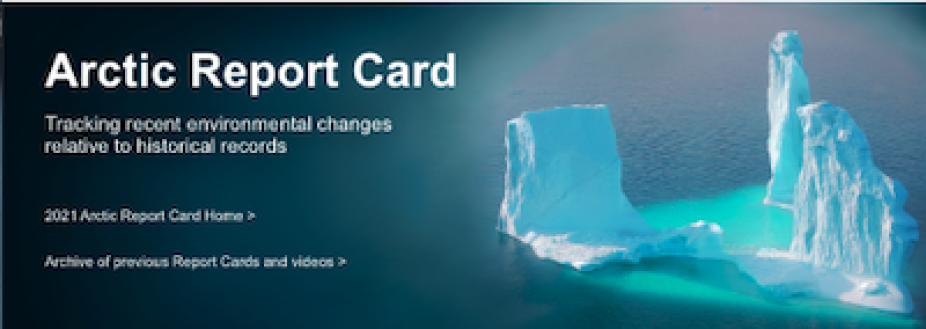
One of the ways this research is communicated is through the Arctic Report Cards. These have been written since 2006. They are a “timely and peer-reviewed source for clear, reliable and concise environmental information on the current state of different components of the Arctic environmental system relative to historical records (NOAA).” As the Coordinating Editor for this Report Card, Kelley’s work is very impactful. It is a chief means of communicating the state of the Arctic to “a wide audience, including scientists, teachers, students, decision-makers and the general public interested in the Arctic environment and science (NOAA).” Kelley managed more than a dozen author, editorial and production teams, all on an extremely strict timeline to provide the most up-to-date information. Her leadership, organizational, and communications skills were critical to ensure the timely release of the Report as she addressed several pivotal challenges along the way, Check out Kelley’s work here.
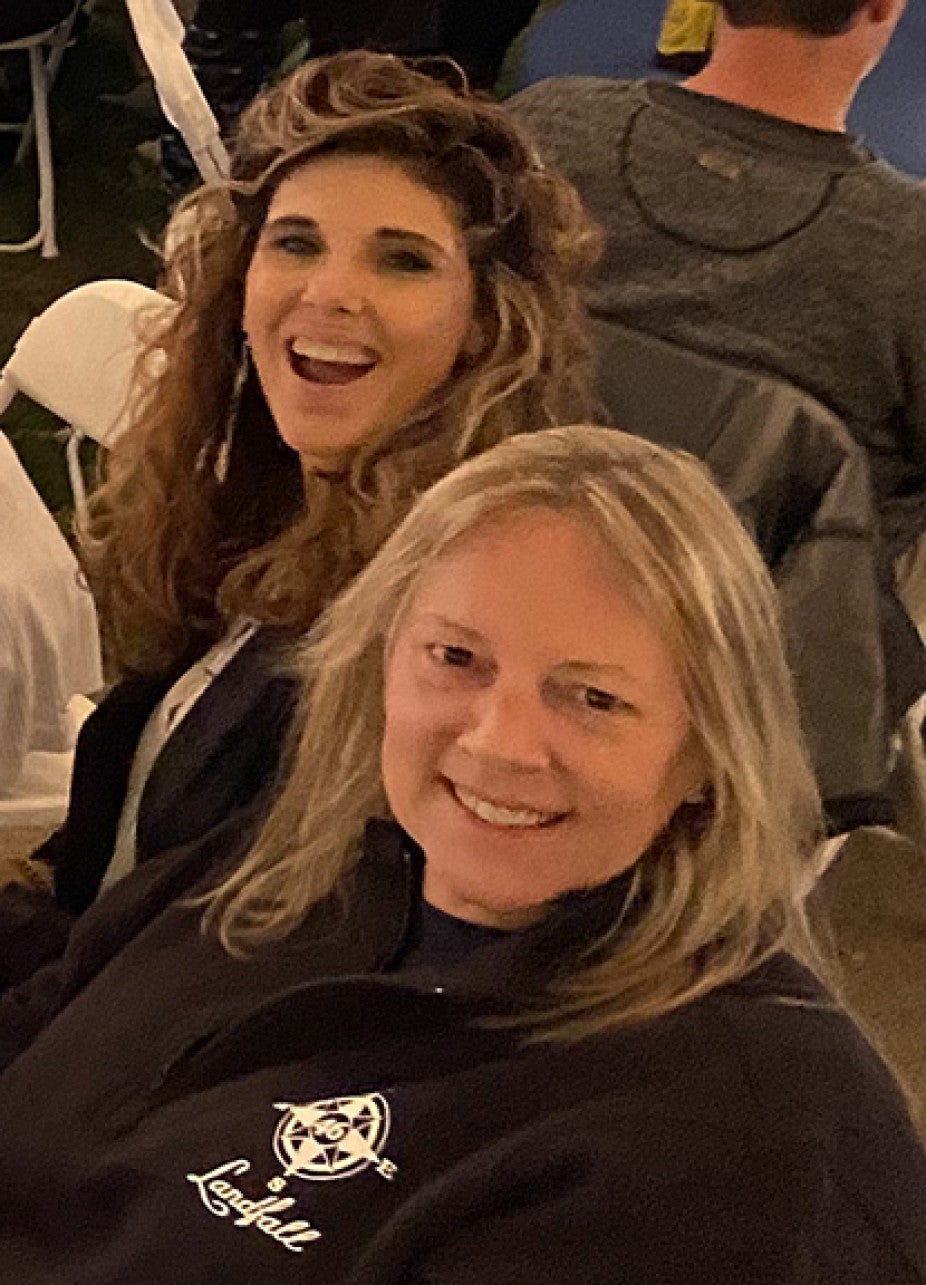
Kathy Tedesco (front) at the Ocean Carbon and Biogeochemistry (OCB) Summer Science Workshop
Last but not least, CPAESS scientist and Climate Program Office Program Manager Kathy Tedesco participated in the Ocean Carbon and Biogeochemistry (OCB) Summer Science Workshop in Woods Hole, Massachusetts from June 19-23, 2022 sponsored by NOAA-GOMO, NSF and NASA. Kathy shared that “The overarching goal of OCB is to explore the ocean’s role in the global carbon cycle and the response of marine ecosystems to environmental changes of the past, present, and future. Plenary sessions included Filling the Gaps in Observation-Based Estimates of Air-Sea Carbon Fluxes; Extreme Ocean Events; and Coastal Observing Systems to Understand and Predict Ecosystem Changes. In addition to plenary sessions on state-of-the-art science, the OCB summer workshop provides a forum for community discussion of new research directions and opportunities.”
Kathy presented an update on GOMO's carbon and BGC activities and participated in a variety of early career-focused activities and interactions including the reception with Agency Program Managers for students and postdocs, the Networking Lunch and the Mentor-Mentee Program where she served as a Mentor for an early career scientist.
A thank you to Scott Robinson of CPAESS for arranging travel for about 20 participants, including students and postdocs.
